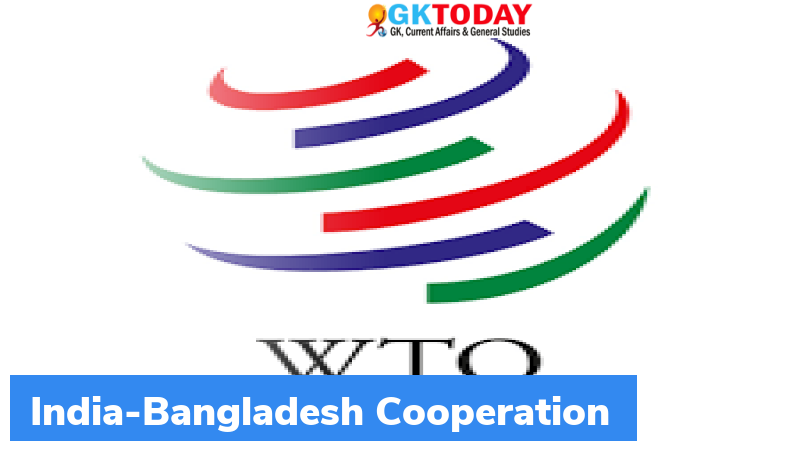Union Cabinet approves India-Bangladesh Cooperation in Trade
The Union Cabinet recently approved the Memorandum of Understanding signed between the Director General of Trade Remedies of India and Trade and Tariff Commission of Bangladesh. The agreement was signed to increase the cooperation in the area of trade remedies. The agreement was signed on March 27, 2021.
Key Highlights
- The agreement aims to promote exchange of information, trade remedies and other activities in accordance with the provisions of World Trade Organisation.
- The agreement mainly targeted on countervailing, anti-dumping and safeguard measures in bilateral trade between India and Bangladesh.
What is Countervailing duties?
The Countervailing Duties, also called CVDs are import tariffs. They are imposed to nullify the adverse effects of subsidies. CVDs are also called anti-subsidy duties.
Suppose a country finds out that a foreign country is subsidising its imports. This will cause harm to domestic suppliers. Thus, the home country can impose duties on such goods to protect its domestic suppliers. These duties are imposed only under World Trade Organisation rules.
What is difference between countervailing duties and anti-dumping duties?
The countervailing duties are imposed on subsidised products on exporting country. On the other hand, anti-dumping duties are imposed on imports that are of low price.
Let us assume that China is exporting silicon wafer to India.
Case 1: Chinese Government provides subsidy to silicon wafer manufacturers. Now when India imposes import duties, then it is called countervailing duties.
Case 2: No subsidies are provided to silicon wafer by Chinese Government. But the exporter is selling at very low prices. In this case, when India imposes duty, it is called anti-dumping duties.
Month: Current Affairs - April, 2021


